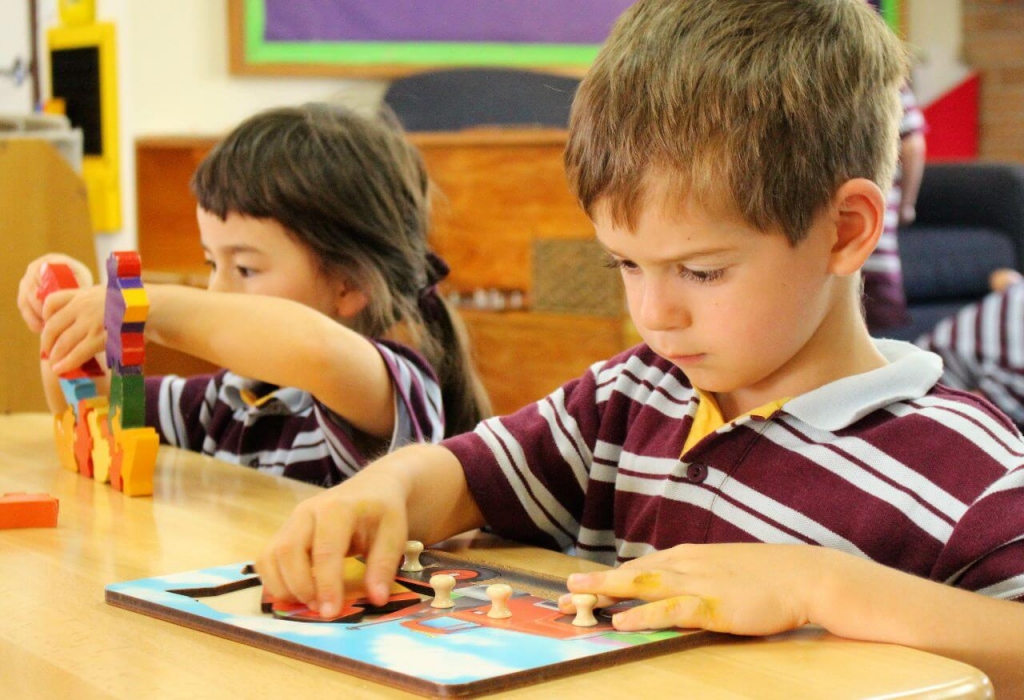We live in a global world, so knowing a second language has become almost indispensable. Learning some extra language to the mother since childhood has many advantages, because the brain of children absorbs and assimilates information more easily and, therefore, can internalize languages naturally. Even so, it is from Primary (6 years) when it begins to give importance in Education and shows students that learning a language is like an ‘obligation’. This is a mistake. The little ones are curious, they want to play and explore; we should take advantage of these qualities. In this article, we show you a series of tricks and tips for your child to grow bilingual from a young age.

The Best Ages of Learning and Linguistic Stimulation are Between 2 and 6 years
From birth to 3 years the brain of the child has its maximum plasticity and more neuronal connections are generated, so it is perfect to feed it with information and teachings. With 3 years old children already establish memory strategies. We must teach them not only to remember but how to organize and communicate.
Observe your Emotions and State of Mind
Children when they are little all attract their attention, they are curious and creative. It’s something wonderful that you have to take advantage of. Learning in a fun way and experience is more effective than studying a memory lesson. Children are exposed to many stimuli and situations that are new to them; we must know that their emotions and moods are going to be very different at every moment. We have to observe and understand them, be flexible and adapt the teaching to each emotional moment of the child. Many times we ignore these signals of the body and, nevertheless, they transmit us a lot of information. If the child is bored, their focus will be much lower. If the child is exalted and excited, maybe it’s time to teach with movement games and more activity.
Not All Children are the Same
It is a mistake to think that in a class all children form a homogeneous whole. Not everyone has the same concerns, nor do all have the same developed skills, nor do they all have the same kind of intelligence. The ideal class would be with small groups, so that the teaching is adaptive to the level and understanding of each one, and ensure an effective learning. As children are in the process of discovery, development of skills and development of each type of intelligence, it is convenient to present different activities in a dynamic way: go alternating reading, writing, hearing, visual, sensory, give the same importance to all of them and all through personal experience.
They are Children, they Want to Play!
Responsibilities and obligations will come later! If it is taught through the game, the children will relate learning with fun and this will motivate them to continue playing and learning. Music is a good instrument to teach, along with rhythm and rhyme. Reading and learning words through colors and shapes (animals, cartoons, food …). The video is another innovative way to create an emotional connection with them. Draw, develop stories through drawings. However, you can enroll your little one at ELC (early learning centre) and they guide you through the joys and challenges of parenting young children.
Teach from Self-Esteem and Personal Improvement
Among the reasons why not many people speak another language, highlights the lack of confidence. Since we were little we have been taught that failure is bad, they put fear in your mind. This takes you to all areas and especially in learning. They label you as “better than X” or “worse than Y” and that affects self-esteem and confidence, creating shyness and introversion. One of the keys to teaching children is cooperation and socialization among them. There is no better or worse, only different people. Games of interpretation, role-play or imitation are interesting to take children out of their comfort zone and present different situations. By doing it in public they will lose the shame to speak, explain, act. Children, when they are little, are not ashamed of anything.
